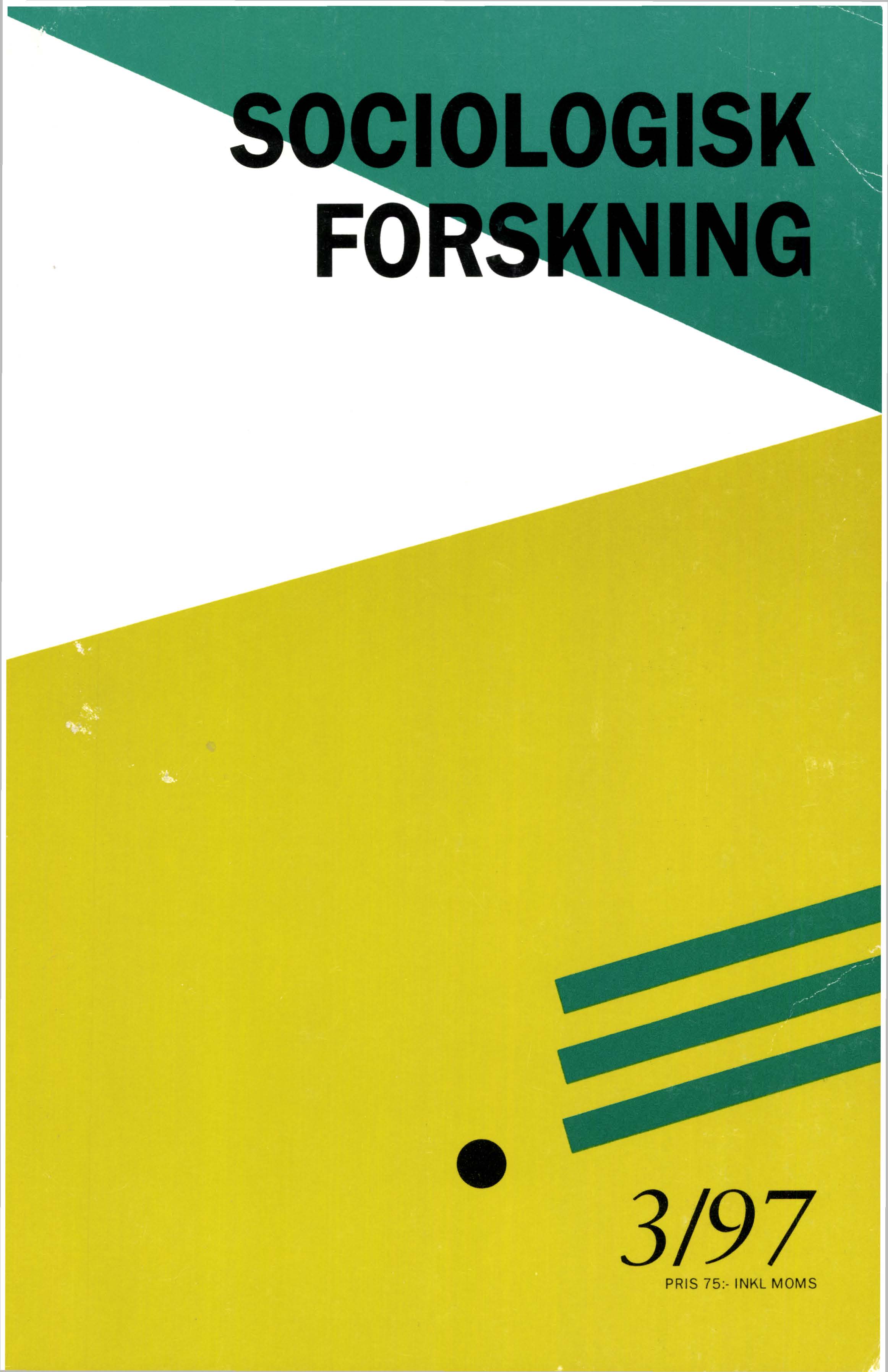Livsvärldens rationalisering och studiet av partikularism
DOI:
https://doi.org/10.37062/sf.34.18542Abstract
Particularism and the reationalization of the lifeworld
A phenomenon that has attracted increasing attention during the last decades is particularism (e.g. ethnic identification, nationalism). I belive that Habermas’ theory of the rationalization of the lifeworld can be made fruitful for the study of this phenomenon. The concept of the ”rationalization of the lifeworld”, however,needs to be differentiated in order to grasp the ambivalent character of modern particularism, which is both rational and irrational. It is rational in the sense that it is often supported by conscious reasons; it is irrational in the sense that these reasons do not claim validity outside of the particular group. I therefore propose that the concept of ”the rationalization of the lifeworld” be divided in two: critical rationalization and generalization. Critical rationalization means an increase in people's ability to critizice beliefs and that justifications therefore have to be made more explicit. Generalization means that justifications are made more generally acceptable. These two kinds of rationalization are not always parallell. They are separate processes, and modern particularism is, I believe, the result of a divergence of critical rationalization and generalization. This differentiation of the conceptof rationalization is therefore a necessary first step in order to turn Habermas’ theory into a theory of particularism. It also has the advantage of more clearly bringing into light some features of his view of reification.
Downloads
Publicerad
Referera så här
Nummer
Sektion
Licens
Allt material i Sociologisk Forskning publiceras med omedelbar öppen tillgång (open access), under Creative Commons-licensen CC BY-NC-ND 4.0.
Allt innehåll i tidskriften är fritt tillgängligt utan kostnad och får för icke-kommersiella syften fritt läsas, laddas ned, kopieras, delas, skrivas ut och länkas. Innehållet får dock inte ändras. När innehållet används måste författare och källa anges. Upphovsrätten till innehållet tillhör respektive författare. Inga publiceringsavgifter tas ut.





